Canine eggheads enjoy playing with toys and retrieving objects.
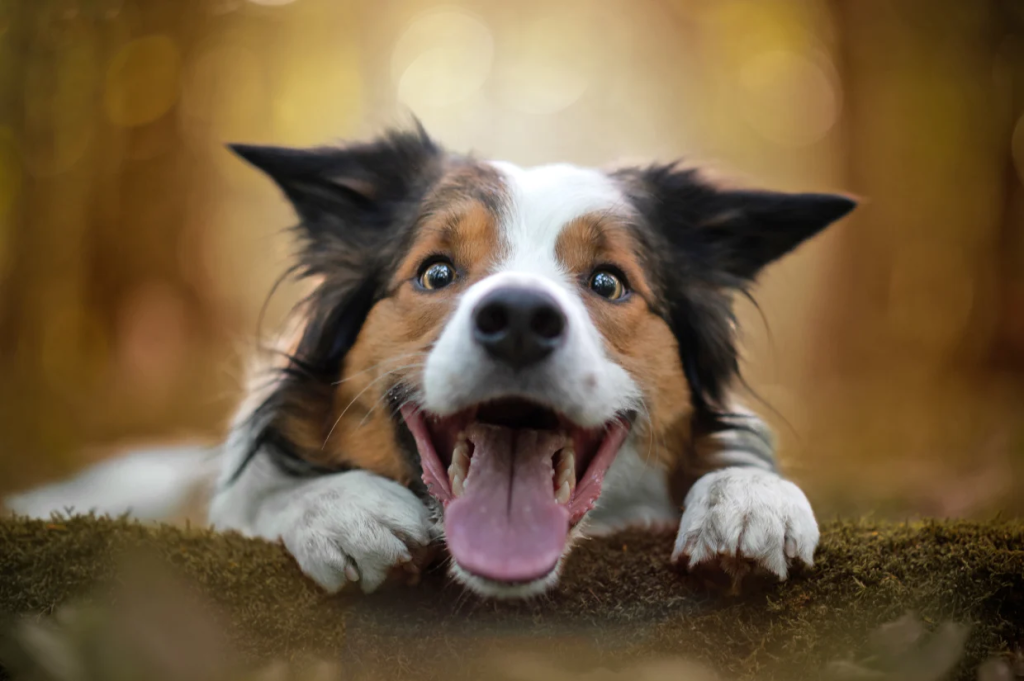
“Gifted” dogs, who have a rare talent for learning lots of words for objects easily, also turn out to be more playful than other dogs, a new study finds.
Prior research in humans has shown a link between playfulness and problem-solving abilities, so animal behavior researchers from Eötvös Loránd University in Budapest, Hungary, wondered if the same was true for rollicking pups.
What is a gifted dog? In the new study, it was Border collies who had proven in prior research that they were able to learn as many as 12 new words per week and then retain them for months.
To take a closer look at the possible association between giftedness and playfulness in dogs, Claudia Fugazza, a researcher in the university’s department of ethology (the study of animal behavior), and her colleagues asked the owners of 165 Border collies to fill out dog personality questionnaires. Twenty-one of the dogs were gifted and the other 114 were just randomly selected with no testing for word learning ability.
The surveys assessed the personality of the animals in five categories:
- Fearfulness, including fear of people, nonsocial fear, fear of dogs, fear of handling.
- Aggression toward people, including general aggression and aggression in certain situations.
- Activity/Excitability, including excitability, playfulness, active engagement and companionability.
- Responsiveness, such as trainability and controllability.
- Aggression toward animals, including aggression toward dogs, prey drive and dominance over other dogs.
For the evaluation of playfulness the owners were asked to rate their dogs in three areas:
- Dog gets bored in play quickly.
- Dog enjoys playing with toys.
- Dog retrieves objects, such as balls, toys and sticks.
The researchers focused solely on Border collies because earlier experiments found that the breed is more likely to be good at learning new words compared to others.
After collecting the survey responses, the researchers then compared the responses from owners of gifted dogs to those from the owners of dogs who had not been identified as gifted.
Playfulness was the only personality trait that was consistently different between the two groups.
It’s not clear from the study whether it’s the playfulness that helps the dogs learn more words, or whether the extra playful ones ended up with more opportunities to learn, said Fugazza, the study’s lead author, said in an email. That’s because gifted dogs tend to learn words for objects when their owners are playing with them.
Are playful dogs smarter?
Not exactly.
“Intelligence is the result of diverse cognitive traits that allow individuals to flexibly solve different types of problems,” Fugazza explained. “Giftedness refers to an extremely good capacity in the case of a specific skill.”
So, maybe gifted dogs are like people who score high on the verbal part of the SATs.
If your pup doesn’t learn words easily, it doesn’t mean it’s a dumb dog. Adam Boyko, an expert in canine genomics, reassures owners that canine intelligence is more than that.
“Both dogs and wolves are playful when they are puppies, but dogs really evolved to living in the human environment and to responding to social cues,” said Boyko, a specialist in the genetics of behavior and an associate professor at the Cornell University College of Veterinary Medicine. “It’s not surprising that the more playful ones exhibit better learning in the domain of learning human words. And it’s not surprising that Border collies, who are bred to respond to human cues, show the propensity to learn words more than other breeds.”
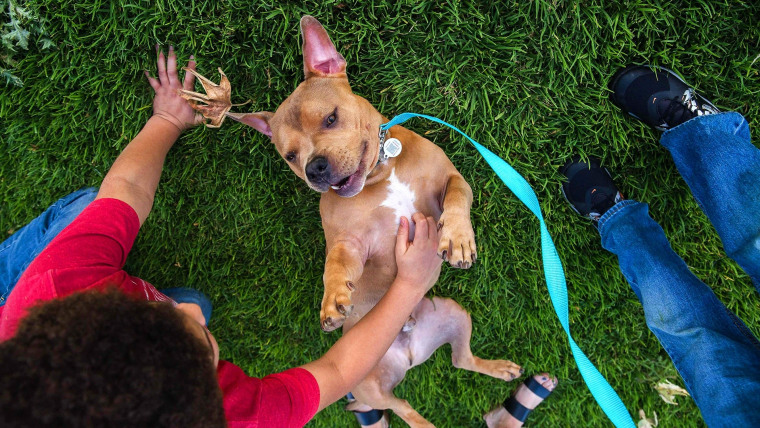
Other breeds of dogs might show intelligence in other ways, Boyko said. For example, wolves are very intelligent although they don’t typically pick up on human cues.
“But they can figure out how to escape,” said Boyko. “Where dogs would look for a person to help, wolves would see how humans did a latch and lock and then the wolves would do it themselves to get out.”
Boyko would like to take the study a step further and look at the genetics of the gifted dogs.
“This is a tantalizing correlation that might be meaningful if you are trying to build better service dogs,” he said.
One thing that can’t be determined from the study is whether the playfulness trait spurred owners to interact more with their dogs and thus teach them more words, said Dr. Nicholas Dodman, a professor emeritus at the Cummings School of Veterinary Medicine at Tufts University, CEO and president of the Center for Canine Behavior Studies and the author of “Pets on the Couch: Neurotic Dogs, Compulsive Cats, Anxious Birds and the New Science of Animal Psychiatry.”
Dodman said the study is interesting but needs to be replicated in a larger number of dogs.
“I would also like to see it done in a different breed,” he said.
The new findings might help people who want to buy or adopt a puppy. It suggests that playfulness might be a good attribute to consider.
“The playful ones might be more likely to interact with a person, assimilate words more easily and be more intelligent,” said Dodman.
Brave 7-Year-Old Inspires with Act of Love: Carrying His Beloved Dog Through a Torrential Downpour

A torrential downpour descended upon the town, catching everyone off guard and sending them scrambling for shelter. In the midst of the chaos, seven-year-old Ethan found himself trapped in the rain with only his faithful canine companion, Max, by his side.

Tears streamed down Ethan’s face as he clung tightly to Max, refusing to abandon his loyal friend during this challenging moment. With unwavering resolve, the boy navigated through the flooded streets, desperately searching for a place of refuge. Bystanders observed, their hearts filled with a mixture of concern and admiration for the courageous young boy.
Ethan’s determination to keep Max safe and dry was evident, despite his small stature and the weight of his dog in his arms. This poignant display of love and compassion touched the hearts of those who witnessed it.
News of Ethan’s heroic actions quickly spread throughout the community, drawing a crowd of onlookers who were moved to tears by the profound bond between the young boy and his loyal companion. Ethan’s selflessness reminded them of the power of love and the importance of standing by those we care about, even in the face of adversity.
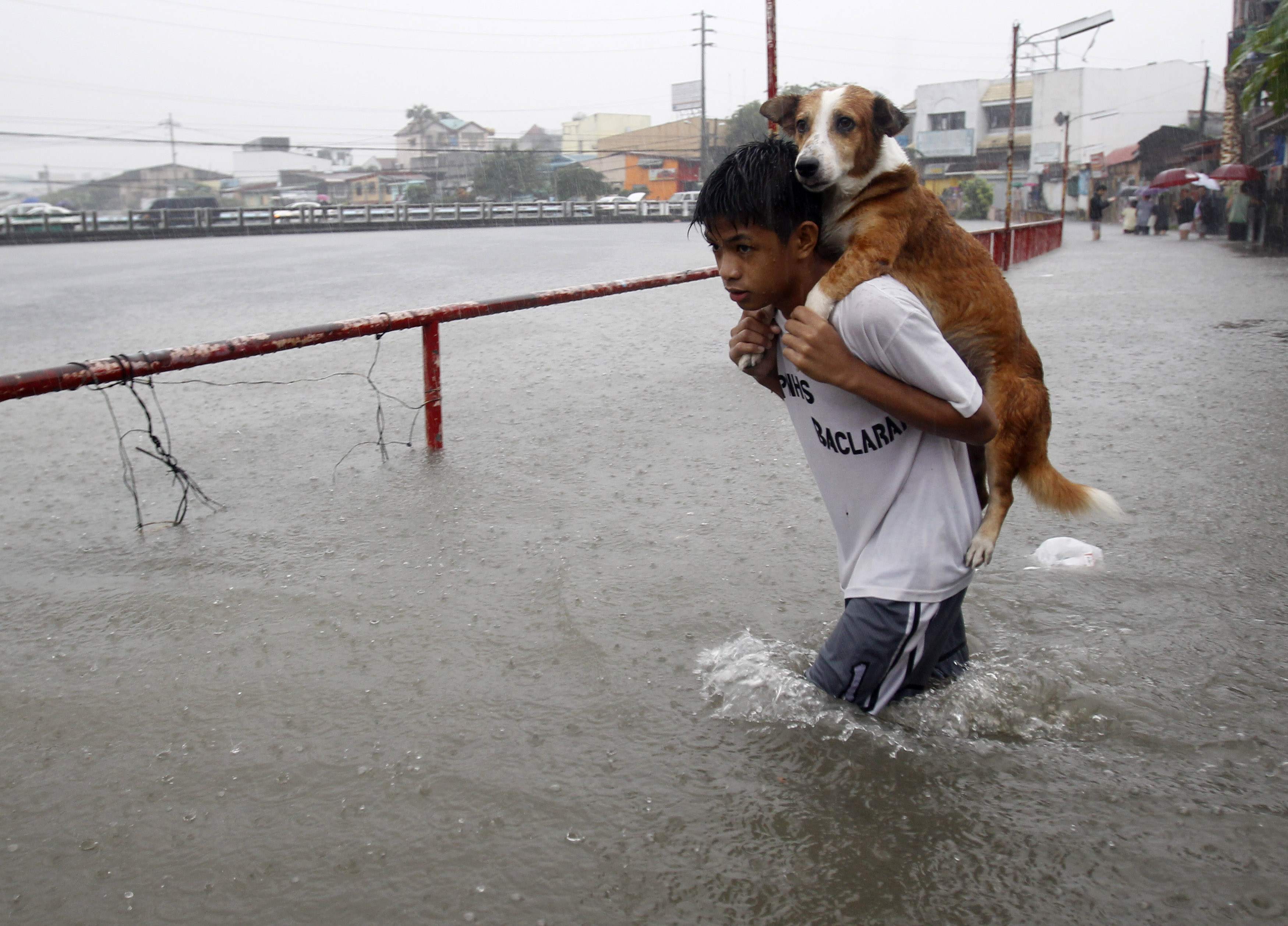
Finally, after what felt like an eternity, Ethan spotted a small sheltered area beneath a nearby tree. With renewed hope, he made his way towards it, shielding Max from the relentless rain as best as he could. The crowd watched with bated breath as the boy and his dog reached the shelter.
A collective sigh of relief swept through the onlookers as Ethan and Max found refuge from the storm. The crowd burst into applause, their tears mingling with the rain on their faces. In that moment, the bravery and love displayed by a seven-year-old boy had touched the souls of many.
This heartwarming story extended beyond the local community, reaching far and wide. It became a symbol of resilience, compassion, and the unbreakable bond between humans and animals. Ethan’s selfless act served as a reminder that even in the darkest of times, acts of love and kindness have the power to bring hope and unite people in a shared sense of humanity.

In conclusion, the story of the seven-year-old boy who carried his dog through a fierce rainstorm left an enduring impression on all who witnessed it. It served as a potent reminder of the unyielding force of love and the extraordinary lengths to which we are willing to go to protect those we hold dear. Ethan’s unwavering determination and selflessness became a wellspring of inspiration, reminding us all to hold fast to compassion, even in the midst of life’s harshest storms.
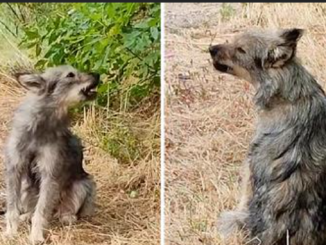
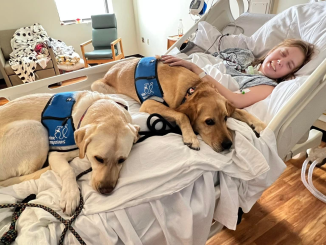

Leave a Reply